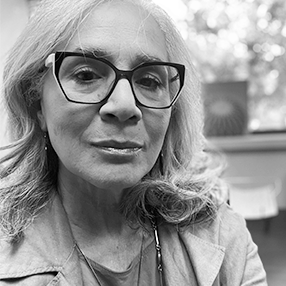Father replays the funeral in Dream #28
Shame forces what we denied into luminosity.
In dream my father tells me my mother’s grieving
prevents momentum.
He’s projecting thoughts to a screen for me to read.
I’m at his private film of captivity.
He’s watching us. We’re hunched over heaving the sorrow vomit.
Father stands before me
time without fear suspended and apart
unafraid of anything one way or another.
“When did they cut it?” he wants to know
pushing the thought into space between my eyes.
Raising his pant leg where the mortician
smoothed and stretched the salvage skin Father used for padding
his below-knee amputation
hovering inches above the ground glints in his eyes.
He doesn’t remember the amputation
in the bending.
Father shows me his whole leg. Scars
mended and smooth.
He is an uncut body again. Like before the bending place.
Only the graft scars on his thighs remain.
He projects: “I feel my leg here Margo my foot still itches here” Father
points: “in this empty space” he twirls his fingers a slow spiral.
I nod to him: “I see. I’ll remember this for you.”
Copyright © 2019 by Margo Tamez. Originally published in Poem-a-Day on September 10, 2019, by the Academy of American Poets.
“My father, Luis Carrasco Tamez, Jr., (1935-1996), visited me in dreams between November 1996 and September 2001. Lingering memories of what he said pressured me to (re)visit intimate familial places in Lipan Apache (Ndé) homelands, in South Texas, where he appeared. His spatial time-bending emplaced a pictorial language, helping me decipher historical violence felt by Ndé of Texas, and lingering impacts of historical trauma which saturate Ndé storied landscapes continually obscured by aggressive settler colonial erasure. Spirit memory as sentience, landguage, place, despair—the collective internalization of Indigenous spatial exile—influence my understanding of my father’s refusal. This poem, echoing post-memory of Ndé intergenerational genocide survivors, explores how historical memory of violence disturbs linear structures which have denied Indigenous peoples’ our lived experiences—even after death.”
—Margo Tamez

